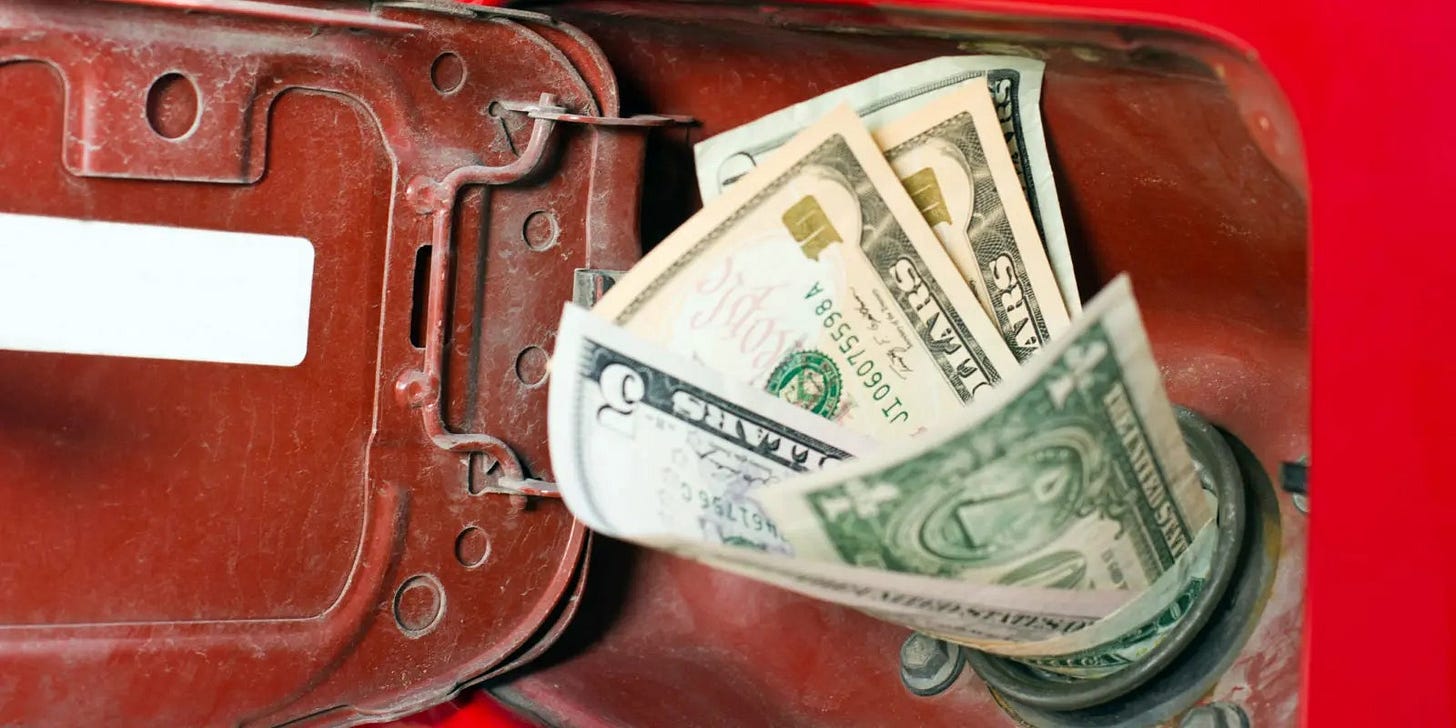Don’t Blame Big Oil Companies for High Gas Prices
The price at the pump is the result of market forces and government intervention
By Alden Abbott
President Biden’s Nov. 17 letter to the Federal Trade Commission (FTC), asking it to investigate “whether illegal conduct is costing families at the pump,” is nothing new. It is in line with decades of political complaints that anticompetitive behavior by big oil and gas companies causes high gasoline prices. Based on past experience, however, it is highly unlikely that the FTC will find that big oil antitrust conspirators are guilty of fleecing the public. Rather, global market forces and government regulation are almost certainly the real culprits.
Less Domestic Oil Supply, More Regulatory Constraints
The petroleum market is an international one, and global fluctuations in crude oil supply and demand directly affect gasoline prices. As American Petroleum Institute research documents, “Changes in gasoline and diesel prices mirror those of crude oil prices, which are determined in the global crude oil market by the worldwide demand for and supply of crude oil.”
Demand for refined petroleum products has risen as the U.S. has emerged from a COVID-induced recession. At the same time, Biden administration policy decisions have revoked permits for the Keystone XL oil pipeline, blocked new oil and gas leases on public lands and favored climate-change policies over energy production (see, for example, the decision to rejoin the Paris Climate Accord, which limits future fossil fuel emissions). These sudden new obstacles to production have signaled to markets that future U.S. oil supplies will be curtailed. These policy decisions also reject Trump administration efforts to facilitate production that temporarily made the U.S. a net energy exporter. Economics teaches that higher demand and reduced future supply will raise prices, which is exactly what has happened.
As it imposed these new policies that led to higher prices, the Biden administration did nothing to ease government regulations that raise the cost of producing and buying gasoline. A major study by the FTC’s Bureau of Economics found that a wide variety of federal environmental regulations has raised petroleum industry costs and weakened competitive forces. Regulatory fuel requirements may impede the movement of gasoline from one region to another as relative prices change, making regional price spikes more common. Also, excessively onerous environmental mandates may discourage needed investments by some oil companies. As the FTC study explains, “As a result, regulations may influence the number of competitors in any market and, for any given competitor, the array of products it is willing and able to supply.”
Government Oversight of Big Oil
But are Biden administration policies the entire story? What about potential anticompetitive actions by the oil companies? Is it worth having a special FTC investigation to find out whether such bad behavior may have further contributed to the recent gasoline price rises?
History suggests the answer is no. For decades, the FTC has closely monitored and investigated petroleum industry mergers and non-merger conduct. Every major oil and gas merger has been scrutinized, and the commission has brought numerous successful enforcement actions to block or restructure mergers. What’s more, the FTC has closely monitored gasoline prices and looked into non-merger conduct that threatened competition. Notably, in 2005 the commission successfully settled a suit against Unocal for anticompetitive conduct, saving California gasoline buyers up to $500 million a year.
The FTC monitoring of gasoline prices deserves special mention. A comprehensive article co-authored by former FTC Chairman Timothy Muris catalogs how Congress has repeatedly required the FTC to investigate and report on alleged anticompetitive behavior in the petroleum industry. Gasoline price spikes during times of crisis, such as the 2005 destruction of oil-refining infrastructure due to Hurricane Katrina, have garnered particular congressional concern.
Reporting on the Katrina aftermath, the FTC concluded in 2006 that petroleum “companies have not restricted the level of capacity below competitive levels and that they have used their capacity to the fullest practical extent.” The FTC also found that gasoline price increases from 2002 to 2005 “do not appear to have resulted from short-run capacity utilization or export market manipulation by refiners.”
The FTC’s Katrina study was not a one-off. Before and since, the FTC has followed gas price fluctuations closely. Also, at Congress’s direction, in 2009 it enacted a Petroleum Market Manipulation Rule that prohibits manipulative or deceptive conduct in wholesale petroleum markets.
Over the years, the commission’s findings have been consistent: Gas price rises are not due to anticompetitive activity, but to normal market forces. This is not surprising. Given the FTC’s detailed monitoring of industry practices, oil companies know that any anticompetitive price manipulation would be swiftly spotted and acted upon by the commission.
For these reasons, the Biden administration should not waste scarce taxpayer funds on a politically motivated oil industry investigation. Instead, it should lift excessive regulatory burdens that discourage petroleum production and artificially raise gas prices. That would truly enhance economic efficiency and benefit consumers at the pump.




